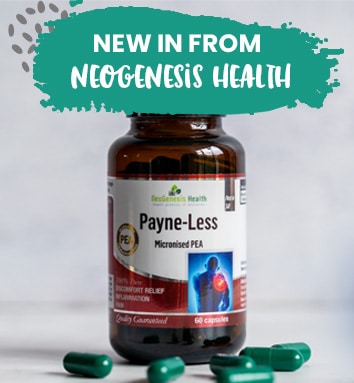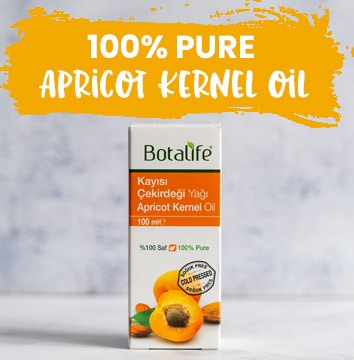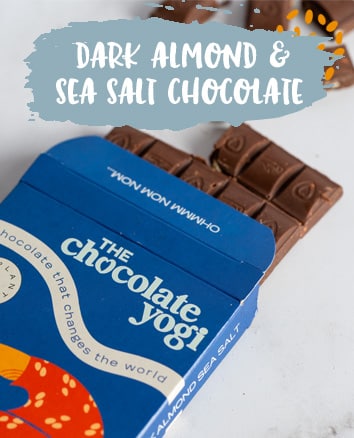The ever-growing beauty and fitness craze has seen protein take centre stage in our diets and wellness routines. With a particular spotlight on collagen, the beauty-boosting favourite, and whey protein shakes and snacks to build muscle.
Navigating this vast sea of protein supplements, from powders to capsules to bars and beyond, it’s essential to know what exactly we’re putting into our bodies. What are we fueling our bodies with, and are they truly benefiting our health?
This article delves into the different proteins, giving insight into their impact and offering alternative organic sources.
Protein: The Building Blocks of Your Body
Protein is a critical macronutrient that acts as the building block for muscles, bones, skin, and hormones.
Comprised of amino acids, proteins are categorised into ‘complete’ and ‘incomplete’ types, depending on their amino acid profile. Complete proteins, which contain all nine essential amino acids, are typically found in animal products, while plant-based proteins often need to be combined to achieve this completeness.
What are Amino Acids?
Amino acids are a type of organic molecule that are crucial for a variety of biological processes. They play an important role in synthesising proteins, neurotransmitters, and metabolic pathways.
20 different types of amino acids can be found in proteins, each with its unique chemical structure and function. Out of the 20 amino acids, nine are considered essential. This means that our bodies cannot produce them naturally, and we must obtain them through our diet.
These 9 essential amino acids are histidine, isoleucine, leucine, lysine, methionine, phenylalanine, threonine, tryptophan, and valine.
When we consume proteins that contain all nine essential amino acids, we provide our bodies with the necessary building blocks to synthesise new proteins and repair damaged tissues.
Animal products like meat, fish, and dairy contain all nine essential amino acids that make a complete protein. On the other hand, most plant-based proteins lack one or more of these essential amino acids, so they need to be combined with other sources to achieve completeness. However, there are some exceptions, like quinoa, hemp seeds, and buckwheat, where these plant proteins contain all nine essential amino acids.
Collagen: More Than Just a Beauty Protein
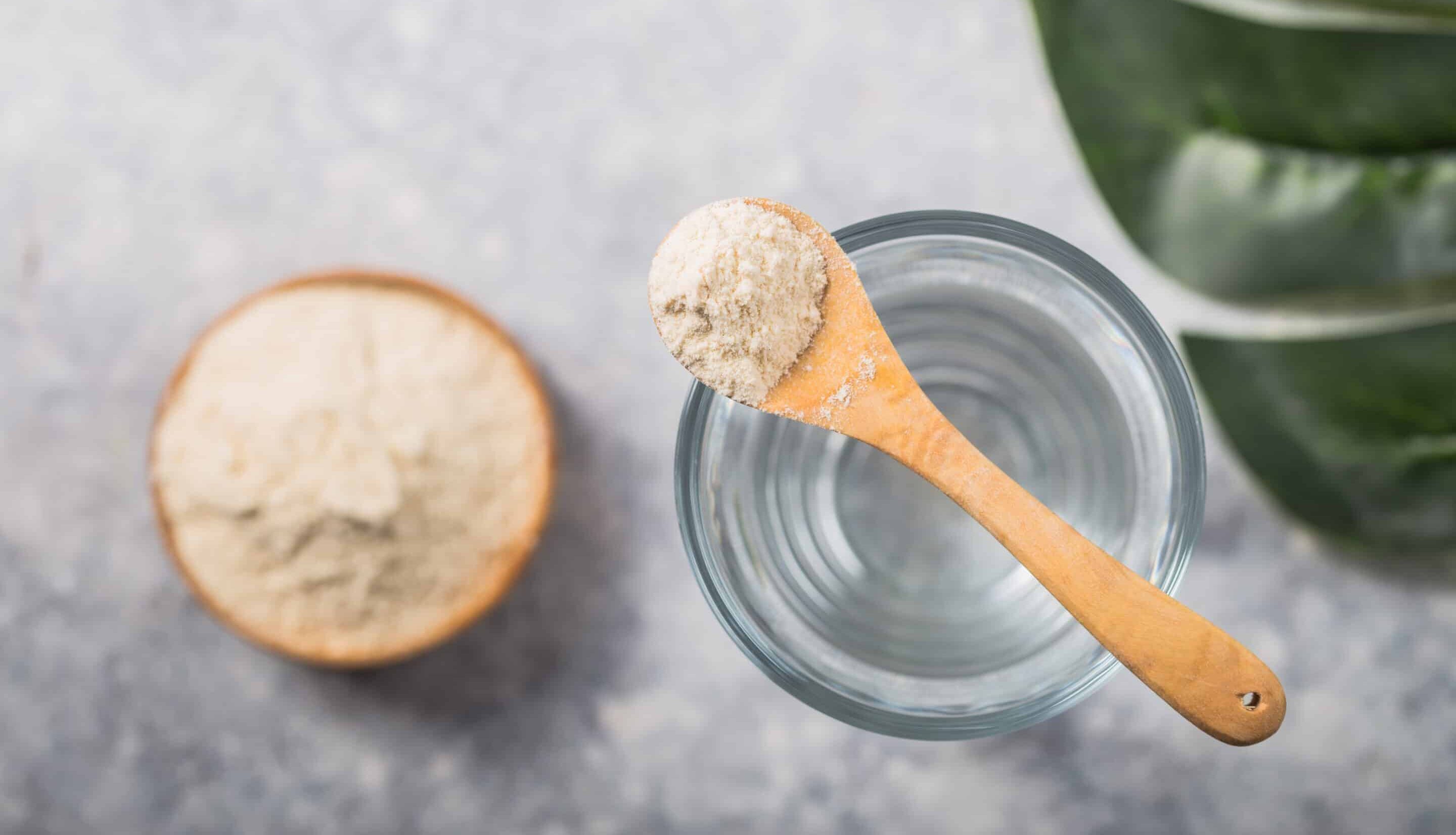
Collagen, a protein hailed for its skin-enhancing and joint-supporting properties, is abundant in our bodies. However, our body’s natural collagen production declines as we age, leading to common signs of ageing, such as wrinkles and joint pain. This reduction has spurred interest in collagen supplements, which claim to replenish collagen levels, promoting health and youthfulness.
The Basics of Collagen
Collagen is a powerhouse protein crucial for maintaining the structure and integrity of skin, bones, tendons, and ligaments. It’s the most abundant protein in the human body and a key component in various health and beauty products.
Understanding the different types of collagen and their specific benefits can help individuals make informed choices about supplementation and skin care.
Types of Collagen
There are at least 28 types of collagen identified by science, but types I, II, and III are the most common in supplements due to their roles in the body:
- Type I Collagen: The most abundant type of collagen in the human body and is essential for maintaining healthy skin, bones, teeth, connective tissue, and tendons. It plays a vital role in providing structure and elasticity to the skin, which helps reduce wrinkles and increases smoothness. Marine collagen, which is sourced from fish, is a rich source of Type I collagen and is considered more easily absorbed and bioavailable than other sources of collagen.
- Type II Collagen: Primarily present in cartilage, it plays a crucial role in maintaining healthy joints. Type II collagen supplements are usually sourced from chicken or other poultry. These supplements are believed to alleviate the joint pain and inflammation commonly associated with arthritis.
- Type III Collagen: Supports the structure of muscles, organs, and arteries. It’s often found alongside Type I collagen in the body and plays a crucial role in maintaining cardiovascular health. Bovine collagen, sourced from cows, is a common source of Types I and III collagen.
Choosing the Right Collagen Supplement
When selecting a collagen supplement, consider the source and the type of collagen it contains:
Source: Collagen supplements are derived from various sources, including bovine (cow), porcine (pig), chicken, and marine (fish). Each source provides different types of collagen, so choosing one that aligns with your health goals is important. For example, marine collagen is best for skin health, while chicken-derived collagen is more suited for joint support.
Hydrolysed Collagen: Also known as collagen peptides, hydrolysed collagen has been broken down into smaller, easily digestible pieces. This form is more bioavailable, meaning it’s easier for the body to absorb and utilise.
Certifications and Quality: Look for third-party supplements tested for purity and safety. Certifications can assure that the product is free from harmful contaminants.
The Benefits of Collagen Supplementation
Supplementing with collagen can offer numerous health benefits. In addition to the already mentioned joint, skin, and heart health improvements, it has also been credited with promoting gut health and strengthening hair and nails.
Here is a summary of its researched benefits:
- Improved Skin Health: Collagen is pivotal in maintaining skin elasticity and hydration.
- Joint Support: Collagen helps maintain cartilage’s integrity, the rubber-like tissue that protects joints.
- Bone Health: Collagen provides structure to bones, helping to keep them strong.
- Muscle Mass Maintenance: Collagen contains amino acids necessary for muscle repair and growth.
- Hair and Nail Strength: Collagen may increase nail strength by preventing brittleness and stimulating hair and nail growth.
- Gut Health: Although research is still emerging, some studies suggest that collagen supplementation could support gut health, potentially aiding in the repair of the intestinal lining and mitigating symptoms of gut-related disorders.
Furthermore, we can provide more comprehensive support to the body’s connective tissues by supplementing additional types IV, V, and X collagen to the commonly supplemented types I, II, and III. This expansion of collagen types, included in NaturePlus’ Collagen Peptides, offers extended health benefits, such as better skin barrier function, improved hair growth, enhanced placental health during pregnancy, stronger bone formation, and more effective joint and cartilage repair.
See our range of collagen at Organic Choice.
Whey Protein: The Muscle Builder
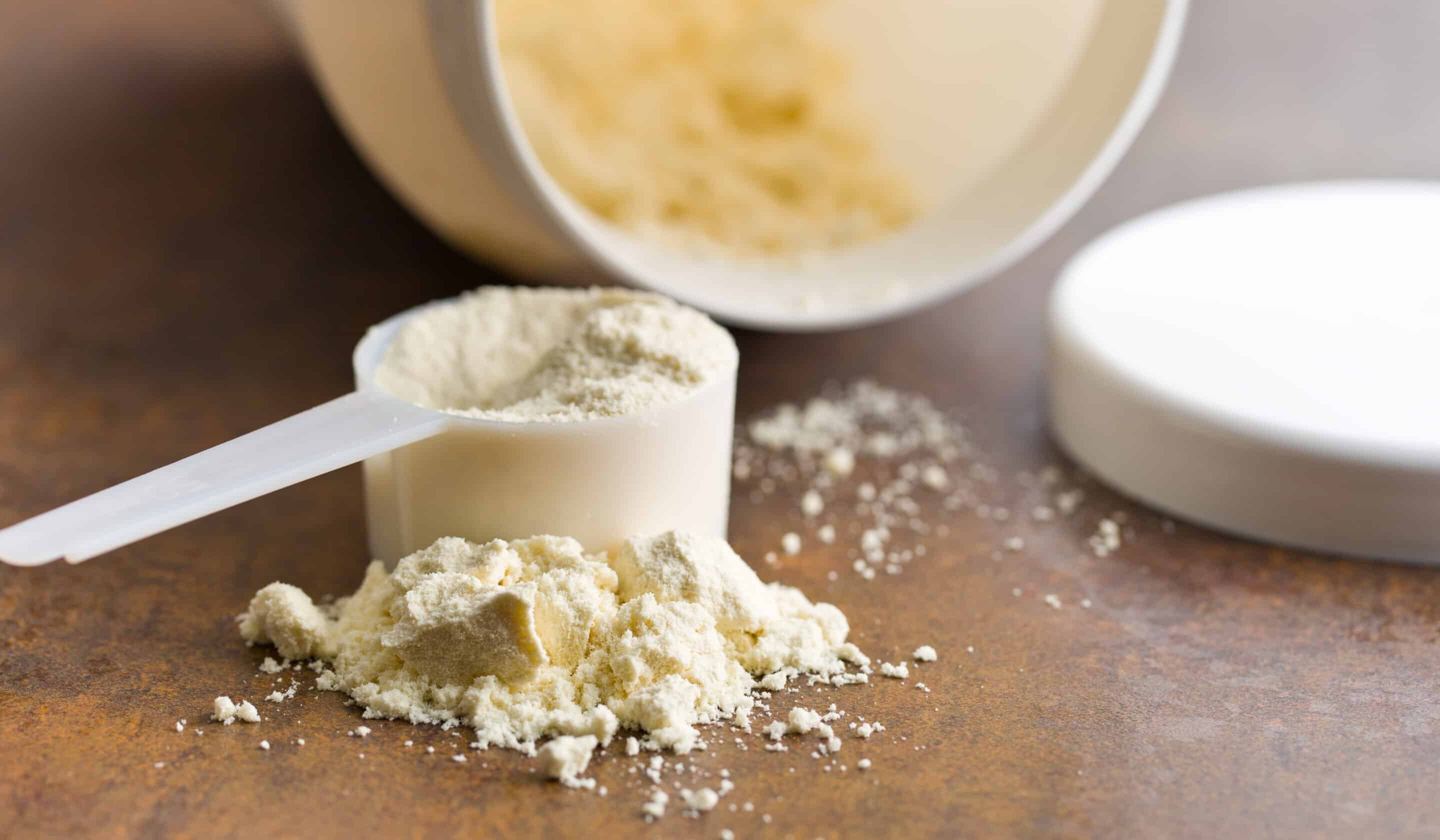
Whey protein is one of the most popular dietary supplements among athletes, bodybuilders, and fitness enthusiasts because of its high-quality protein content. This protein content is efficient in muscle repair, recovery, and growth.
Whey protein is a by-product of cheese production that is known for its ability to support muscle repair and growth. It is considered a complete protein because it contains all nine essential amino acids that the body cannot produce independently.
These amino acids are crucial for muscle repair and growth, making whey protein an ideal supplement for athletes and those who engage in regular physical activity. Furthermore, whey protein is easily digested and absorbed by the body, making it an efficient source of protein.
Understanding Whey Protein Quality
The quality of whey protein is determined by its amino acid profile and its bioavailability (how easily it’s absorbed and utilised by the body). Whey protein comes in three main forms: concentrate (WPC), isolate (WPI), and hydrolysate (WPH). Each form has a different protein content, with isolates being the purest form.
The Dangers of Incomplete Whey Protein
Nutritional Deficiency: Incomplete whey protein lacks one or more essential amino acids, which can lead to dietary imbalances or deficiencies, especially if whey is a primary protein source in one’s diet.
Impaired Muscle Repair and Growth: Incomplete proteins may not provide all the necessary amino acids for optimal muscle protein synthesis, potentially diminishing workout results and recovery.
Increased Risk of Contaminants: Low-quality whey protein supplements, often characterised by their incompleteness, may also carry a higher risk of containing contaminants and additives. These can include heavy metals, such as lead or arsenic, and unnecessary fillers or artificial ingredients, posing additional health risks.
Misleading Claims: Some supplements may market themselves as containing “whey protein” without specifying the type or quality, misleading consumers about their efficacy.
How to Choose a Safe and Effective Whey Protein
Look for Complete Protein Sources: Ensure the whey protein is labelled as containing all nine essential amino acids. Opt for whey protein isolate or hydrolysate for the highest purity and protein content.
Check for Certifications: Look for supplements that have been third-party tested and certified by reputable organisations. These certifications help ensure the product meets high-quality standards and is free from harmful levels of contaminants.
Read Ingredient Labels Carefully: Choose products with minimal ingredients and without unnecessary fillers, artificial sweeteners, or additives. The simpler the ingredient list, the better.
Research Brands: Invest in brands with a good reputation for quality and transparency. Reading reviews, seeking recommendations from trusted fitness professionals, and researching can help identify the best products on the market.
See our Whey Protein at Organic Choice.
Plant-Based Proteins: A Sustainable Choice
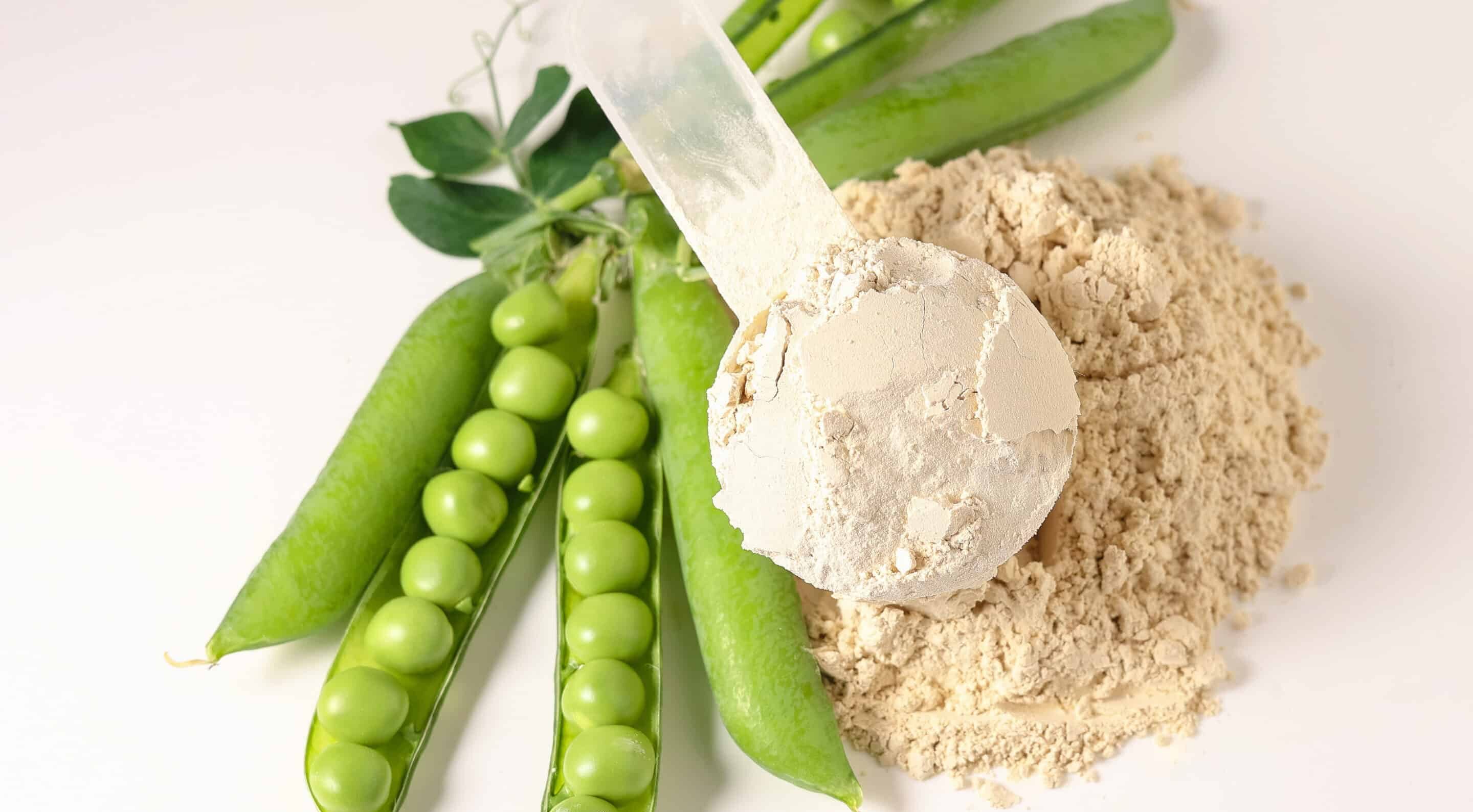
As we become more environmentally aware, plant-based proteins are gaining popularity for their lower carbon footprint, ethical considerations regarding animal welfare and sustainability.
Pea, hemp, rice and soy protein offer rich protein sources for those seeking alternatives to animal products. By combining different plant-based proteins, individuals can ensure they’re receiving a complete amino acid profile while supporting a more sustainable food system.
Here’s an insight into plant-based proteins, highlighting their sources, benefits, and considerations for inclusion in your diet:
Sources of Plant-Based Proteins
Plant-based proteins can be found in a diverse range of foods, ensuring there’s something to suit every palate and dietary requirement. Key sources include:
Legumes: Beans, lentils, chickpeas, and peas are rich in protein and fibre, making them filling and nutritious.
Grains: Quinoa, barley, and oats provide protein, essential vitamins, and minerals.
Nuts and Seeds: Almonds, chia seeds, flaxseeds, and hemp seeds are high in protein, healthy fats, and omega-3 fatty acids.
Soy Products: Tofu, tempeh, and edamame are among the most protein-rich plant foods, offering a versatile and widely accessible source of plant-based protein.
Vegetables: While generally not as protein-dense as legumes or nuts, certain vegetables like broccoli, spinach, and asparagus offer moderate amounts of protein.
Benefits of Plant-Based Proteins
Nutritional Value: Plant-based proteins often have a high fibre content, essential nutrients, and fewer saturated fats than animal proteins. This can contribute to better heart health, weight management, and reduced risk of chronic diseases.
Environmental Sustainability: Producing plant-based proteins typically requires less water, land, and energy.
Ethical Considerations: Plant-based proteins provide an ethical alternative that avoids harmful animal farming practices.
Combining Plant Proteins for Complete Nutrition
Plant proteins (except soy and quinoa) are deficient in one or more essential amino acids.
Consuming various plant-based protein sources throughout the day is important to ensure a complete amino acid profile. This practice is known as protein complementation.
Tips for Achieving Protein Complementation
Whether you’re a vegetarian, vegan, or just looking to diversify your protein intake, plant-based proteins can play a key role in a balanced and healthy diet.
Diversify Your Sources: Incorporate a wide range of plant-based proteins into your meals to ensure a comprehensive nutrient intake.
Experiment with Meat Alternatives: To add diversity to your diet, explore the variety of meat alternatives available, such as veggie burgers or “meatballs” made from legumes and grains.
Enhance Flavours Naturally: Use herbs, spices, and marinades to enhance the natural flavours of plant proteins, making them just as satisfying as their animal counterparts.
Plant-based proteins offer a viable, sustainable, and nutritious alternative to traditional animal-based proteins. With a variety of sources available, they can easily be incorporated into any diet, providing health benefits while also addressing environmental and ethical concerns.
See our range of Plant-Based Proteins at Organic Choice.
What Classifies a Protein Supplement as Organic?
A protein supplement is classified as organic, more appropriately referred to as “clean” based on its source and the methods used in farming, processing, and manufacturing.
Here are the criteria to classify each type of protein supplement as a clean protein:
Collagen
Sourcing: Clean collagen must come from animals raised according to organic farming practices. This includes feeding the animals organic feed and avoiding using antibiotics, growth hormones, or genetically modified organisms (GMOs).
Processing: The process of extracting collagen from animal tissues must not involve synthetic chemicals. Any additional ingredients included in the collagen supplement also need to be organic.
Whey
Animal Welfare: Clean whey protein is derived from the milk of cows raised on organic feed without synthetic pesticides or fertilisers. These cows are not treated with antibiotics or growth hormones and usually have access to pasture.
Non-GMO: The feed given to these cows must be free from genetically modified organisms.
Processing: Similar to collagen, processing whey protein into a supplement must avoid using synthetic additives or processing aids. Any flavourings, sweeteners, or other additives included must also meet organic standards.
Plant-Based Proteins
Organic Farming: Plant-based proteins (such as pea, rice, hemp, and soy) need to be sourced from crops grown without the use of synthetic pesticides, herbicides, or fertilisers. Organic farming practices promote soil and water conservation and reduce pollution.
Non-GMO: The plants used for organic protein powders must be non-genetically modified.
Processing: The process of extracting protein from plant sources and turning it into powder form must not involve synthetic chemicals. Additionally, any other ingredients mixed with the protein powder need to be organic to maintain the organic classification of the final product.
The Organic Choice
Making a decision between collagen, whey, or plant-based proteins is crucial for meeting your dietary requirements. However, it has a significant impact not only on your health but also on animal welfare and the environment. It doesn’t matter if you’re protein-crazy, collagen-obsessed, or just striving for a balanced diet; it’s essential to evaluate the quality of your protein as much as the quantity.
Visit Organic Choice for our selection of clean protein supplements and start making healthier, more ethical decisions.





